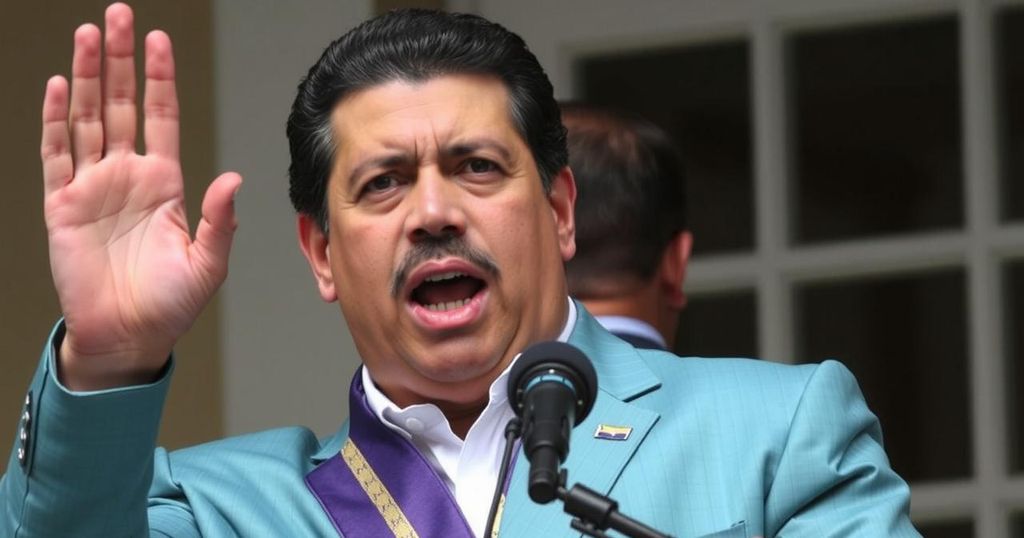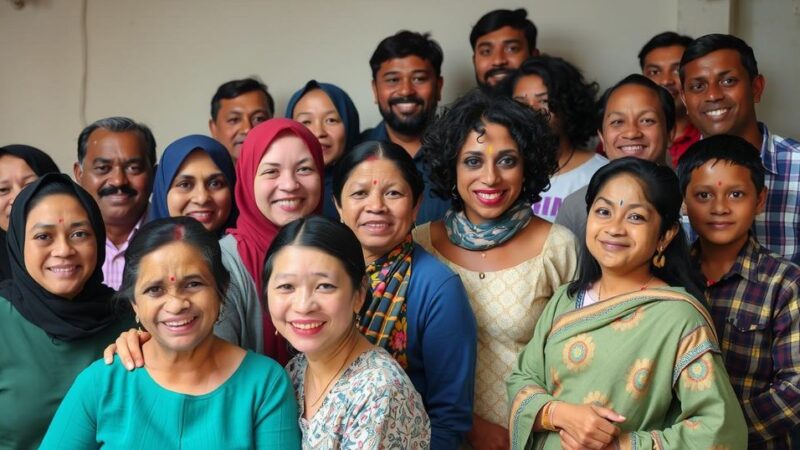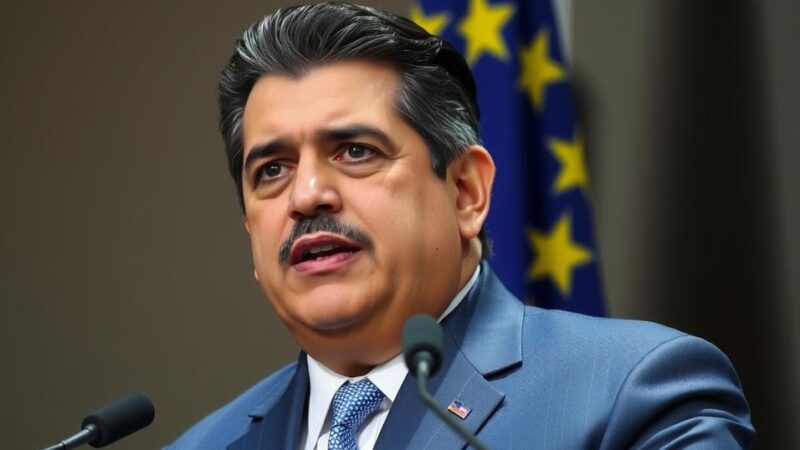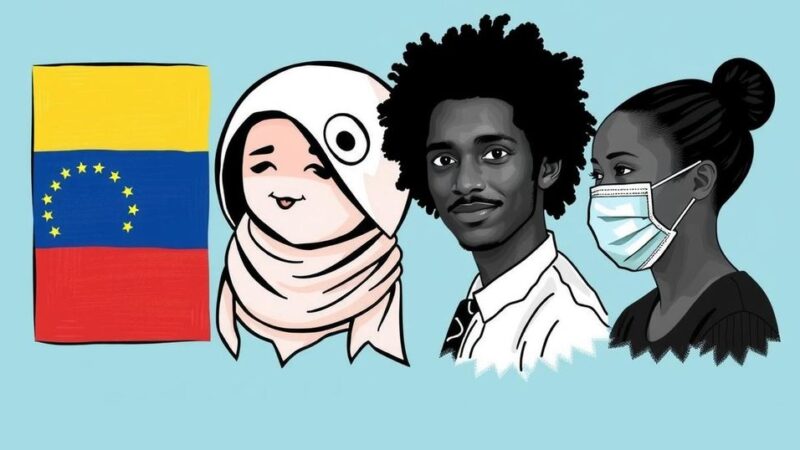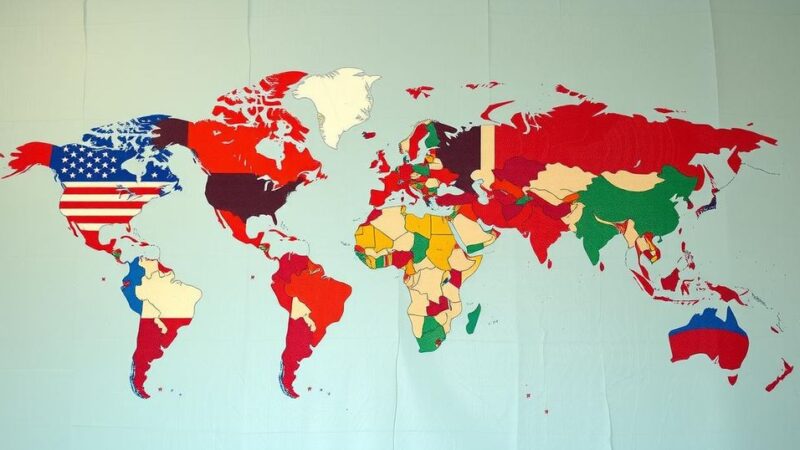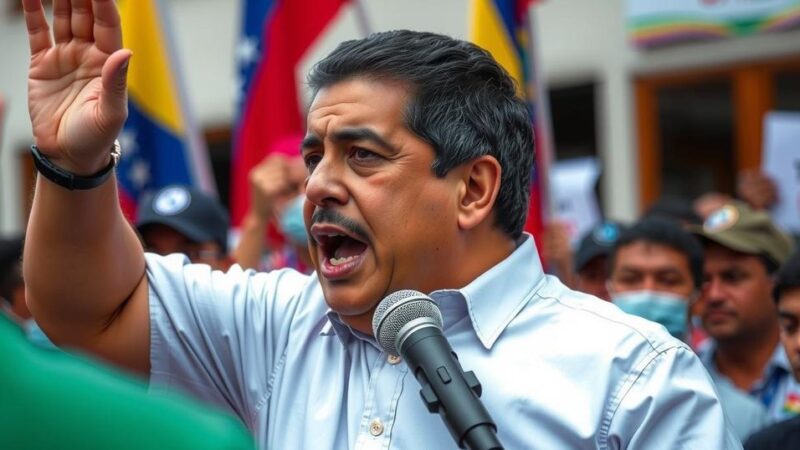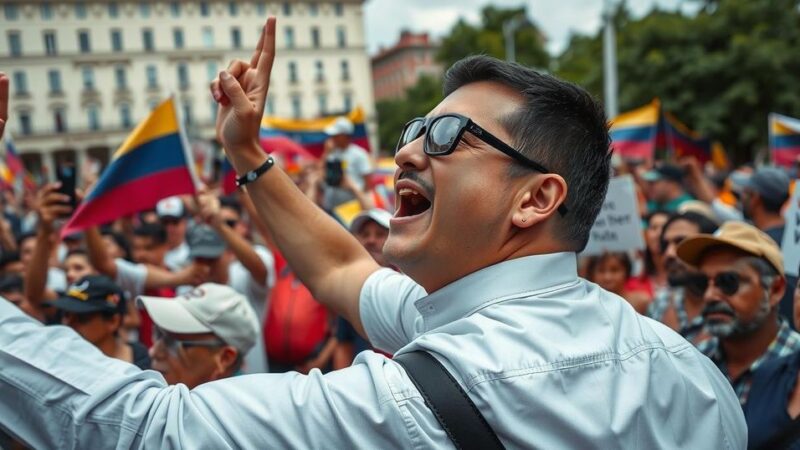Nicolás Maduro was sworn in for a third term as President of Venezuela amidst widespread allegations of electoral fraud favoring Edmundo González. Following intense protests, opposition leader María Corina Machado was detained, exacerbating the already tense atmosphere. The government faces international condemnation over its repressive tactics and lack of transparency during the election process.
On Friday, Venezuelan President Nicolás Maduro was sworn in for a third six-year term, extending a controversial rule until 2031, despite significant allegations of election fraud indicating that his opponent, Edmundo González, was the actual victor. The inauguration, held at Venezuela’s legislative palace, was surrounded by extensive security measures involving police and military personnel. Pro-Maduro supporters gathered in the streets, while opposition protests intensified, culminating in the brief detention of opposition leader María Corina Machado before the event, amidst reports of her being coerced into making statements against her will. The electoral authorities declared Maduro the winner, but lacking transparency and detailed vote counts, the opposition collected data showing that González had received double the votes of Maduro. The aftermath of the election has seen widespread protests and violent crackdowns, with over 2,000 arrests and several reported fatalities. The international community has raised concerns regarding the legitimacy of the election and the repression of dissenting voices, resulting in calls for Machado’s release. Additionally, the absence of foreign leaders at the inauguration highlights the growing isolation of Maduro’s administration, which has garnered notable criticism from countries across the Americas and Europe.
The recent swearing-in of Nicolás Maduro amidst allegations of electoral fraud serves as a microcosm of the political turmoil in Venezuela. Following a presidential election marred by irregularities, significant evidence surfaced suggesting that opposition candidate Edmundo González had secured a majority of the vote. The political climate has become increasingly polarizing, marked by severe repression of dissent, detentions of opposition figures, and civil unrest. The Maduro regime’s heavy-handed tactics raise fundamental questions regarding democracy and governance in Venezuela amid growing calls for accountability from the international community.
In conclusion, Nicolás Maduro’s inauguration, underscored by substantial claims of electoral corruption and subsequent civil unrest, illustrates the ongoing political crisis in Venezuela. The opposition remains staunchly opposed to Maduro’s regime, advocating for due democratic processes and justice for victims of governmental repression. International voices continue to condemn the Maduro administration’s actions, emphasizing the need for transparency and accountability in Venezuela’s electoral practices. The implications of these events may significantly influence the stability of the region and the future of Venezuelan democracy.
Original Source: wsvn.com

